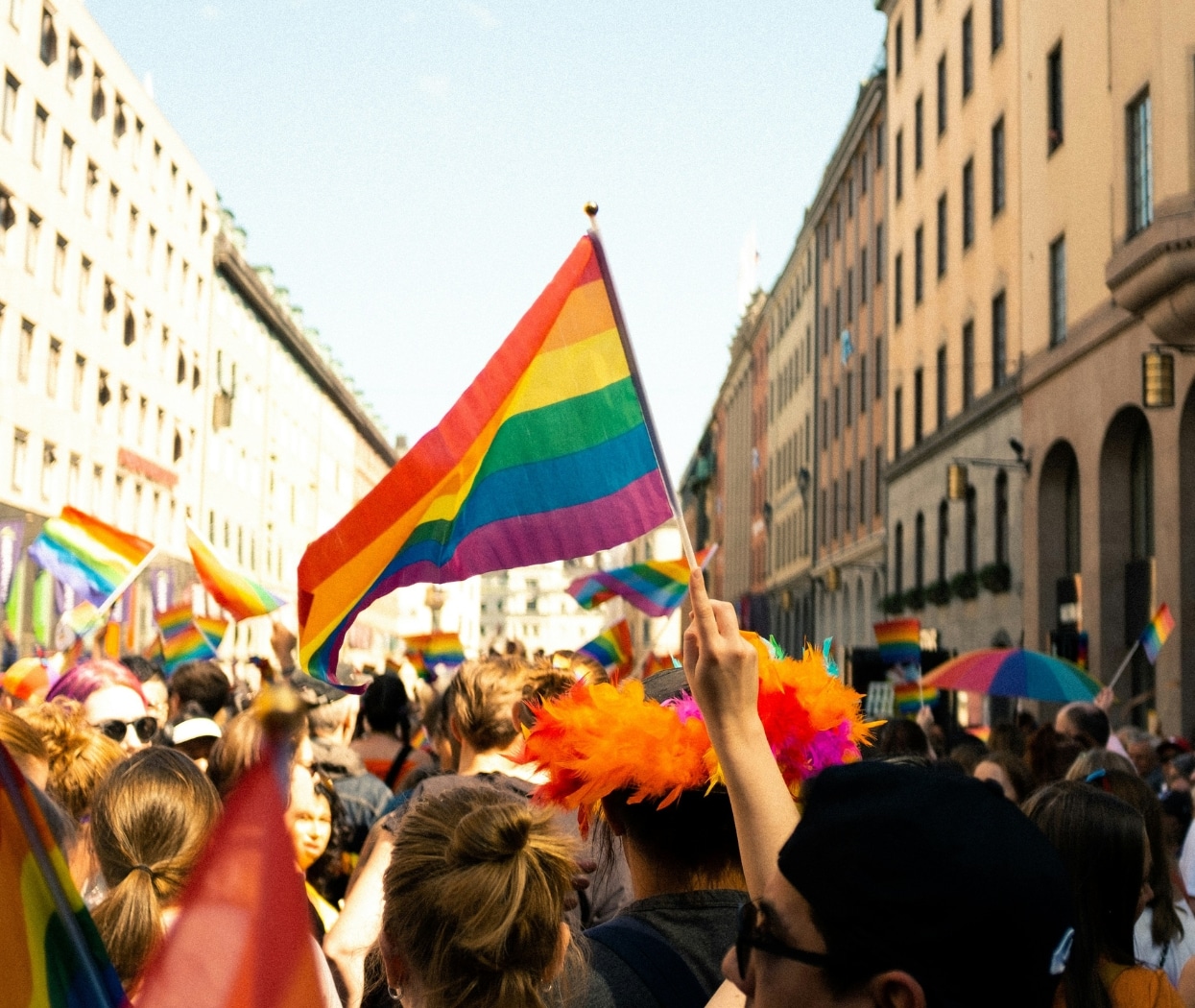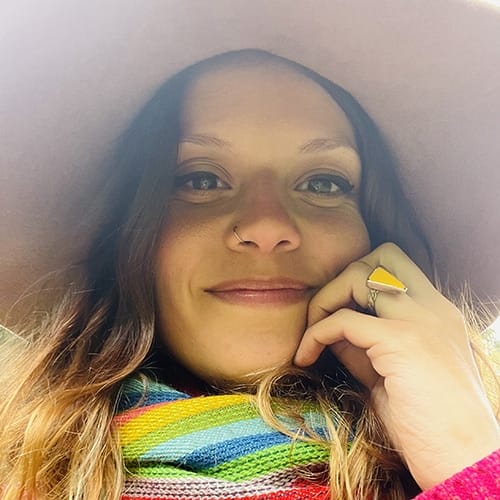Transforming Consciousness: How Psychedelics Support the
LGBTQIA+ Community
In the ever-evolving landscape of consciousness, psychedelics have emerged as profound tools for personal and collective transformation. The kaleidoscopic experiences they offer can range from light-hearted moments with friends in a garden, realizing our shared humanity as “floating gloobs of meat carcasses,” to deep, introspective journeys that question our actions, beliefs, and the very essence of our being.
In recent years, the LGBTQIA+ community has faced an alarming increase in violence and discrimination. For instance, 2023 saw the tragic deaths of 320 transgender women worldwide, a stark reminder of the deadly prejudice and hatred that still exist. Many of these individuals were murdered in acts of violence fueled by transphobia. This pattern of violence is not limited to one region but is a global crisis, affecting countries across the Americas, Europe, Africa, and Asia. The Human Rights Campaign reports that 2021 was the deadliest year on record for transgender and non-binary people in the United States, with at least 47 known violent deaths.
These statistics reflect only the cases that are reported and properly identified, suggesting the actual numbers may be even higher. The violence against LGBTQIA+ individuals extends beyond physical attacks to include psychological abuse, harassment, and systemic discrimination in employment, housing, healthcare, and education. LGBTQIA+ youth, in particular, face significant challenges, including higher rates of homelessness due to family rejection and bullying in schools. This pervasive environment of hostility and exclusion contributes to the high rates of mental health issues within the community.
Psychedelics can be the answer to our debilitating and oppressive belief systems around our LGBTQIA+ friends, offering unique and transformative perspectives, not only for the difficulties the community faces, but for those holding a perspective of division, marginalization and targeting.


The Power of Psychedelics in Healing and Understanding
Psychedelics open doors to understanding the intricate dance between our masculine and feminine energies. Traditional views of gender, often rigid and binary, can be transcended through the expansive lens of psychedelic experiences. When we explore the realms of our consciousness, we begin to see beyond material forms and into the universal laws that govern our existence. This deeper understanding can be particularly liberating for LGBTQIA+ individuals who face constant scrutiny and violence based on their gender identities and expressions.
The Hermetic Principle of Gender, also known as the Principle of Masculine and Feminine, is one of the seven foundational principles outlined in the ancient Hermetic text, the Kybalion. This principle posits that gender exists in everything and manifests as both masculine and feminine energies. These energies are not confined to physical sex or societal gender roles but are present in all aspects of existence, including thoughts, behaviors, and creation processes. Masculine energy is typically associated with attributes like assertiveness, logic, and initiative, while feminine energy encompasses qualities such as intuition, nurturing, and receptivity. The interaction of these energies is essential for creation and balance in the universe.
Understanding and harmonizing the masculine and feminine within oneself can lead to greater self-awareness and spiritual growth, transcending binary gender concepts and embracing a more holistic view of existence.
A Historical and Cultural Perspective
The use of psychedelics in LGBTQIA+ communities is not a new phenomenon. Many ancient tribes recognized and revered the existence of a third gender, integrating these individuals into their cultural and social frameworks in meaningful ways. The Zapotec people of Oaxaca, Mexico, acknowledge the Muxes, who embody a blend of masculine and feminine traits and often hold respected roles in their communities. Similarly, the Native American cultures across North America recognize Two-Spirit individuals, a term that encompasses a range of gender identities beyond the male-female binary. Two-Spirit people often held special roles as healers, shamans, and spiritual leaders. In South Asia, the Hijra community, which has a history dating back thousands of years, is considered a third gender and plays significant roles in religious and cultural ceremonies. These societies typically treated their gay and third-gender individuals with respect, recognizing their unique contributions and often attributing to them spiritual significance. This acceptance contrasts sharply with the often rigid and exclusionary views seen in many modern societies.
In South Asia, the Hijra community, which has a history dating back thousands of years, is considered a third gender and plays significant roles in religious and cultural ceremonies. The Hijras, often involved in spiritual practices, have a deep historical connection with traditional medicine and rituals, which sometimes include the use of psychoactive substances for divination and healing.
The Fa’afafine of Samoa, individuals who embody both masculine and feminine traits, also have historical roles that blend spirituality and community leadership. In various indigenous cultures in the Philippines, the Babaylan (shaman) could be male, female, or gender-variant individuals, often playing pivotal roles in healing and spiritual practices using local psychoactive plants.
These societies typically treated their gay and third-gender individuals with respect, recognizing their unique contributions and often attributing to them spiritual significance. This acceptance contrasts sharply with the often rigid and exclusionary views seen in many modern societies.
However, the history of psychedelics in the LGBTQIA+ community is complex. In the 1950s and 60s, LSD was misused in harmful gay conversion therapies. Yet, as psychedelic research has progressed, there has been a growing awareness of the need to dismantle oppressive structures within the psychedelic movement itself.
The anthology Queering Psychedelics: From Oppression to Liberation in Psychedelic Medicine, produced by the Chacruna Institute, addresses these issues, advocating for greater accessibility and diversity in psychedelic science and practice. One of the key topics discussed in the anthology is the historical misuse of psychedelics in harmful practices such as gay conversion therapy. In the mid-20th century, substances like LSD were used coercively in attempts to change individuals’ sexual orientation, causing significant psychological harm. The anthology acknowledges these traumatic histories and emphasizes the importance of understanding and learning from these past abuses to prevent their recurrence.
The anthology also critiques the psychedelic movement’s history of exclusionary practices, where research and participation have often been dominated by cisgender, heterosexual individuals. It highlights how these practices have marginalized LGBTQIA+ voices and experiences, limiting the diversity and richness of psychedelic science. The authors call for a reevaluation of research methodologies and inclusion criteria to ensure that studies encompass a broader range of gender identities and sexual orientations.
Queering Psychedelics advocates for inclusive and affirming research practices that consider the unique needs and experiences of LGBTQIA+ individuals. This includes designing studies that specifically explore how psychedelics can address the mental health challenges faced by LGBTQIA+ communities, such as higher rates of depression, anxiety, and PTSD due to societal stigma and discrimination. The anthology underscores the importance of creating safe and supportive environments for LGBTQIA+ participants in both research settings and therapeutic contexts.
The collection highlights the healing potential of psychedelics for LGBTQIA+ individuals, particularly in terms of fostering self-acceptance, healing trauma, and enhancing spiritual well-being. Essays within the anthology discuss personal narratives and case studies where psychedelics have helped individuals come to terms with their identities, process past traumas, and build resilience in the face of ongoing societal challenges.
Queering Psychedelics also addresses the need for greater diversity within psychedelic spaces, including conferences, workshops, and community groups. It calls for the inclusion of LGBTQIA+ voices in leadership roles and as speakers and facilitators, ensuring that the community’s perspectives are represented and valued. The anthology encourages the establishment of LGBTQ-friendly psychedelic integration circles and support groups where individuals can share their experiences in a safe and affirming environment.

The Road to Liberation
The emotional and psychological toll on the LGBTQIA+ community is immense, driven by constant exposure to violence, discrimination, and trauma. From childhood bullying to systemic inequalities and hate crimes, LGBTQIA+ individuals often face a barrage of negative experiences that deeply impact their mental health. This community experiences higher rates of depression, anxiety, PTSD, and suicide compared to their heterosexual and cisgender counterparts. The constant need to navigate a world that frequently marginalizes and targets them adds layers of stress and trauma that can be overwhelming.
Psychedelics as a Healing Modality
Psychedelics offer a fast and conscious healing approach that can address these deep-seated wounds. These substances have shown great promise in treating mental health conditions by facilitating profound psychological and emotional breakthroughs. Psychedelics like psilocybin, MDMA, and ayahuasca have been studied for their ability to help individuals process trauma, enhance emotional resilience, and foster a sense of connectedness and self-acceptance.
In a recent article, April Short discusses the potential of psychedelics to help gay men heal from the trauma of AIDS. The AIDS crisis of the 1980s and 1990s left a lasting scar on the LGBTQIA+ community, particularly among gay men who witnessed and experienced immense loss and stigma. Psychedelics can offer a pathway to healing by enabling individuals to confront and process their grief and trauma in a safe and supportive environment. These substances can help individuals access buried emotions, reframe traumatic memories, and achieve a sense of peace and closure.
Creating Inclusive and Supportive Spaces
As we continue to explore the therapeutic potential of psychedelics, it is crucial to create inclusive and supportive spaces for LGBTQIA+ individuals. This means designing clinical trials and therapeutic sessions that are sensitive to the unique needs and experiences of LGBTQIA+ people. Practitioners should be trained in cultural competence and LGBTQIA+ issues to provide a safe and affirming environment.
Inclusive psychedelic spaces should celebrate diversity and promote a sense of belonging. This can be achieved through community-led initiatives, such as LGBTQIA+ friendly psychedelic integration circles, support groups, and educational workshops. These spaces allow individuals to share their experiences, offer mutual support, and build a sense of community.
By fostering environments that respect and celebrate diversity, we can harness the power of psychedelics to promote healing, understanding, and liberation for all. Psychedelics have the potential to dissolve barriers between individuals, enhance empathy, and foster a deeper understanding of the interconnectedness of all beings. This can lead to greater acceptance and compassion within the broader society.
Moreover, the integration of psychedelics into therapeutic practices for LGBTQIA+ individuals can empower them to reclaim their narratives and find strength in their identities. It can help them heal from past traumas, build resilience, and envision a future where they are free from discrimination and harm. As we move forward, it is essential to advocate for policies and practices that support the inclusion of LGBTQIA+ voices in psychedelic research and therapy, ensuring that the benefits of these substances are accessible to all who need them.
A Call for Compassion and Understanding
In summary, the potential of psychedelics to heal the emotional and psychological wounds of the LGBTQIA+ community is immense. By creating inclusive and supportive spaces, we can harness the transformative power of these substances to foster healing, understanding, and liberation for all.
The conversation around psychedelics and the LGBTQ community is multifaceted and ongoing. As we move forward, it is essential to challenge and dismantle the heteronormative and transphobic norms that have historically excluded LGBTQ individuals from the psychedelic movement. By doing so, we can create a more inclusive and compassionate world where differences are celebrated rather than punished.
Featured photography by Upslash

